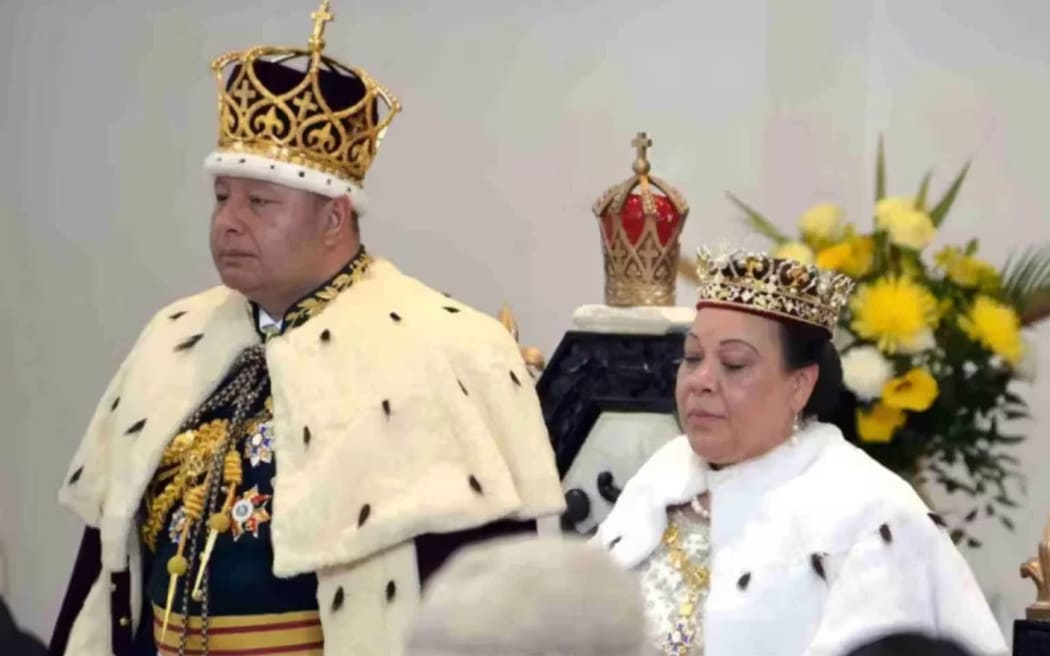World
Tonga’s King Resumes Control Over Foreign Affairs, Sparking Backlash

Concerns are escalating in Tonga following a decision by King Tupou VI to remove oversight of the Ministry of Foreign Affairs from democratic control and place it under the Palace Office. This controversial move has been characterized by democracy advocates as a significant regression in the country’s political reform efforts.
The Tongan Legislative Assembly recently passed legislation to transfer management of the Ministry, now officially titled His Majesty’s Diplomatic Service, to the administration of the Palace Office. This decision has drawn sharp criticism, particularly from the Friendly Islands Democratic Party, which is led by Teisa Pohiva Cokanasiga, the daughter of late Prime Minister Akilisi Pohiva, a prominent figure in the democracy movement.
Teisa Pohiva Cokanasiga expressed her discontent with the legislation during a recent interview, stating that the transfer represents a major setback from the democratic reforms initiated between 2000 and 2010. She asserted, “This is a fundamental change to the structure of this ministry and the structure of government. We are going back to how it was before the change in 2010.”
The current Minister of Foreign Affairs, Crown Prince Tupouto’a ‘Ulukalala, facilitated the bill’s passage from the Cabinet to the Legislative Assembly. It now awaits royal assent from the King, who chairs the Privy Council, which has raised questions about the implications for governance in Tonga.
Critics are particularly concerned about the operational implications of this change. In her remarks, Cokanasiga highlighted the challenges of managing a vital ministry like Foreign Affairs without democratic oversight, noting the existing dual structure within the ministry. There is currently a minister appointed by the people and a secretary for foreign affairs appointed by the King, creating a “tug of war” within the ministry.
Cokanasiga further emphasized the need for the Ministry of Foreign Affairs to be governed similarly to other ministries, suggesting that it should have a minister and a chief executive officer chosen through the Public Service Commission Act. “Instead of letting the ministry operate fully under the control of the Minister and the Prime Minister in Cabinet, we are going backwards, taking everything back to the King instead of Cabinet,” she remarked.
The implications of this decision extend beyond the legislative chamber. Cokanasiga expressed hope that the petition presented to the Palace Office would prompt the King to reconsider granting his royal assent to the Act. She indicated a desire for public consultation on the matter, noting that many citizens are dissatisfied with the proposed changes and their parliamentary representatives.
As Tonga approaches its elections later this year, the political landscape may shift in response to public sentiment regarding the new legislation. Cokanasiga believes this situation could influence how voters perceive their current representatives and underscores the importance of electing officials who can effectively oppose legislation perceived as detrimental to democracy.
In this context, the future of Tonga’s democratic reform remains uncertain as the nation grapples with the implications of the King’s latest move.
-

 World3 months ago
World3 months agoTest Your Knowledge: Take the Herald’s Afternoon Quiz Today
-

 Sports3 months ago
Sports3 months agoPM Faces Backlash from Fans During Netball Trophy Ceremony
-

 Lifestyle3 months ago
Lifestyle3 months agoDunedin Designers Win Top Award at Hokonui Fashion Event
-

 Sports3 months ago
Sports3 months agoLiam Lawson Launches New Era for Racing Bulls with Strong Start
-

 Lifestyle3 months ago
Lifestyle3 months agoDisney Fan Reveals Dress Code Tips for Park Visitors
-

 World3 months ago
World3 months agoCoalition Forms to Preserve Māori Wards in Hawke’s Bay
-

 Health3 months ago
Health3 months agoWalking Faster Offers Major Health Benefits for Older Adults
-

 Politics3 months ago
Politics3 months agoScots Rally with Humor and Music to Protest Trump’s Visit
-

 Top Stories3 months ago
Top Stories3 months agoUK and India Finalize Trade Deal to Boost Economic Ties
-

 Entertainment3 months ago
Entertainment3 months agoExperience the Excitement of ‘Chief of War’ in Oʻahu
-

 World3 months ago
World3 months agoHuntly Begins Water Pipe Flushing to Resolve Brown Water Issue
-

 Science3 months ago
Science3 months agoNew Interactive Map Reveals Wairarapa Valley’s Geological Secrets









